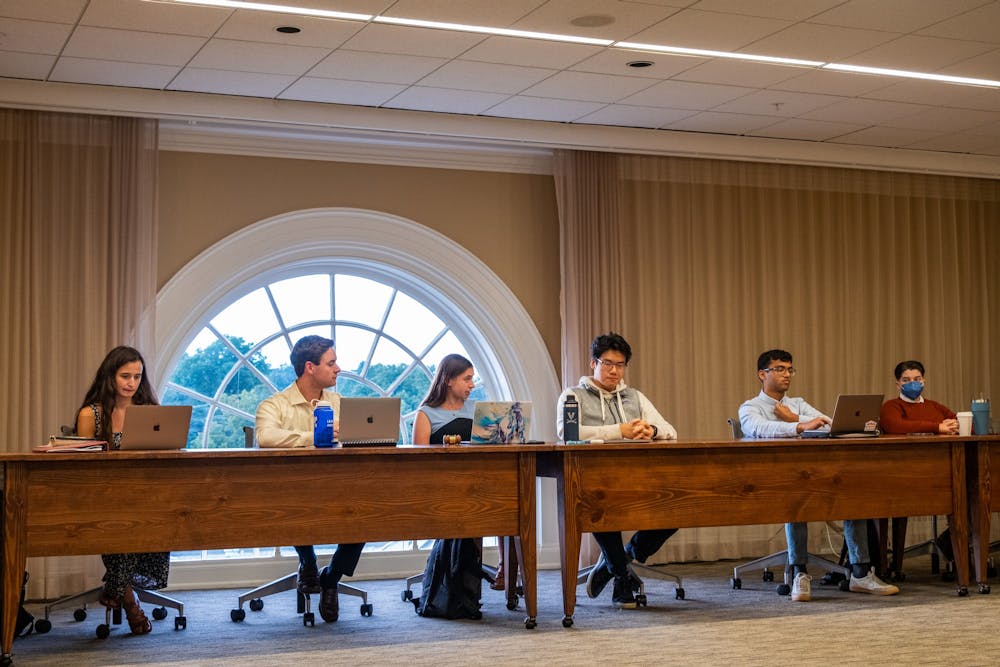The Honor Committee discussed the Contributory Health Impairment policy and ways to increase faculty engagement with the Committee during its third meeting of the new academic year Sunday evening. 16 out of 23 members were in attendance.
After brief comments and updates from school representatives, the Committee went into closed session at 7:08 p.m. The Committee returned to open session at 7:14 p.m. to discuss the budget for the new academic year.
The Committee then moved into a discussion about CHI policy and how to improve access to mental health care for students. A CHI is any health impairment including a mental disease, mental disorder or a medical condition that causes a student to commit the infraction they are being investigated for. As more students arrive on Grounds each year, there has been an increase in the demand for mental health services, especially as a result of the pandemic.
Honor offenses involving CHIs are processed by the office of the Vice President of Student Affairs, and require an initial psychological assessment by a therapist or psychiatrist — called an “expert assessment” in the CHI procedures. However, these assessments must be sought out and paid for by students, and often cost hundreds of dollars, meaning they can be largely inaccessible and difficult to procure.
Fourth-year College student Rep. Sullivan McDowell said the Committee should consider assisting students in paying for mental health assessments.
“The reality is in Charlottesville mental health care is really hard to come by, especially affordable mental health care,” McDowell said.
The Committee then opened up discussion about possible solutions to this problem and how to make mental health care more accessible to students in need.
Hamza Aziz, third-year College student and vice-chair for investigations, suggested the Committee could look to Student Council for ways to increase accessibility of student health care. Student Council currently partners with Counseling and Psychological Services through its Next Steps Fund, which provides two fully-subsidized therapy sessions for University students with community therapists.
“I feel like this could almost be like a phenomenal opportunity to solve the problem at hand of codifying our CHI procedure, and also establishing a formal partnership with another community partner,” Aziz said.
Following discussion about the CHI, the Committee moved into a discussion about faculty engagement and how to get professors more involved in Honor.
Aziz said he thinks the first step in engaging more with faculty is discussing why professors and teaching assistants don’t always report offenses. Professors who catch students cheating may or may not opt to report them to the Honor Committee, as some professors chose to handle the offense without an official report because of the lengthy process — investigations can continue for months as students are interviewed, re-interviewed, and tried.
“It would be interesting to find out what their hesitancy is in department meetings or in these kinds of conversations we have with them,” Aziz said. “Hopefully we can incorporate that into our discussions.”
Fourth-year College student Rep. Hannah Shapiro said working with faculty members is different from working with fellow students, adding that working with faculty requires more “professionalism.”
“Part of the reason professors have a hesitancy is a perceived lack of professionalism,” Shapiro said. “We need to figure out a way that we can elevate the conversation.”
Following public comment, the meeting was adjourned at 7:34 p.m.
The Honor Committee’s next meeting will be held Sunday at 7 p.m. in the Trial Room of Newcomb Hall and will focus on due processing training from the Committee’s legal counsel. Earlier this week, the Honor Committee announced it plans to host a Constitutional Convention this year aimed at drafting a multi-sanction system — CIOs interested in sending a delegate can email Bray at honor@virginia.edu.
EDITOR’S NOTE: Representative McDowell’s name has been updated for accuracy.







